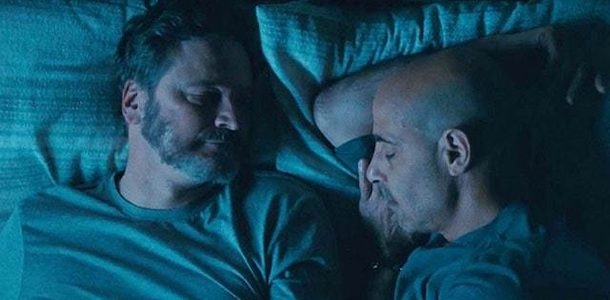
ReelBob: ‘Supernova’ ★★★★
By Bob Bloom
Sam (Colin Firth) and Tusker (Stanley Tucci) are on holiday, driving a camper on back roads through the English countryside.
Like most longtime couples, they are mock-arguing and teasing each other.
And as they interact, you notice that something is bubbling beneath the surface.
Tusker, you see, is ill, having earlier been diagnosed with dementia; and he and Sam are taking a road trip to visit family and friends.
That is the simple premise of “Supernova,” a delicate movie about love, devotion and commitment.
Writer-director Harry Macqueen is not coy about Tusker’s prognosis, but it is superseded by the bond shared by Sam, a concert pianist, and Tusker, a writer.
They are realists about the future — Tusker, as is slowly revealed, is more so than Sam.
The movie is more melancholy than sad; Macqueen makes it a reflection of two joyous lives shared.
Sam and Tusker are fully aware of the inevitable; when they stop at night, they make a tape, a record of the day’s events and their feelings.
Tusker’s gradual deterioration is glimpsed by little things — his hesitancy while speaking, his searching for a word or forgetting one.
Yet, despite the cloud hanging over the couple, they continue to enjoy life. They return to a secluded lakeside spot they stopped at years before — then, visit Sam’s sister and her family.
While there, a surprise birthday party for Sam — which Tusker had planned for months — is held.
Yet, even this joyous occasion is overshadowed by Tusker’s illness, as he is unable to complete reading a letter he composed for Sam and their friends, passing it off to his partner to finish.
“Supernova” works because of Firth and Tucci; these two splendid actors are so natural and comfortable around each other that you accept the depth of their relationship. They can finish each other’s thoughts and anticipate what each has to say.
It is difficult at times to watch Tucci without wanting to weep. His Tusker is well aware of what lies ahead for him. He tells Sam’s sister, Lily, that a hard part of his illness is seeing people mourn him when he is still alive.
“Supernova” has a few dark moments, mostly centering on a secret Sam discovers about Tusker. It leads to a confrontation in which Sam and Tusker openly discuss their pent-up feelings of helplessness and fear.
Tusker admits to Sam that he knows he is losing control of himself, while Sam reveals that he feels guilt about his selfishness: “I don’t want to be alone,” he tells Tusker.
Tusker patiently describes to Sam how he feels: “I’m becoming a passenger — and I am not a passenger,” he says, adding that the disease is taking him to a place he doesn’t want to go.
“I want to be remembered for who I am, not for what I have become,” he tells Sam.
Firth’s performance is just as touching as Tucci’s. He portrays Sam as strong and a bit stoic, but in moments when Sam is alone, Firth allows himself to display his character’s emotional toll and vulnerability.
In the end, “Supernova” is a delicate celebration of living life on one’s own terms. Despite its subject matter, it is a low-key and modest story of compassion.
I am a founding member of the Indiana Film Journalists Association. I review movies, 4K UHD, Blu-rays and DVDs for ReelBob (ReelBob.com), The Film Yap and other print and online publications. I can be reached by email at bobbloomjc@gmail.com. You also can follow me on Twitter @ReelBobBloom and on Facebook at ReelBob.com or the Indiana Film Journalists Association. My movie reviews also can be found at Rotten Tomatoes: www.rottentomatoes.com.
SUPERNOVA
4 stars out of 4
(R), language, sexual content